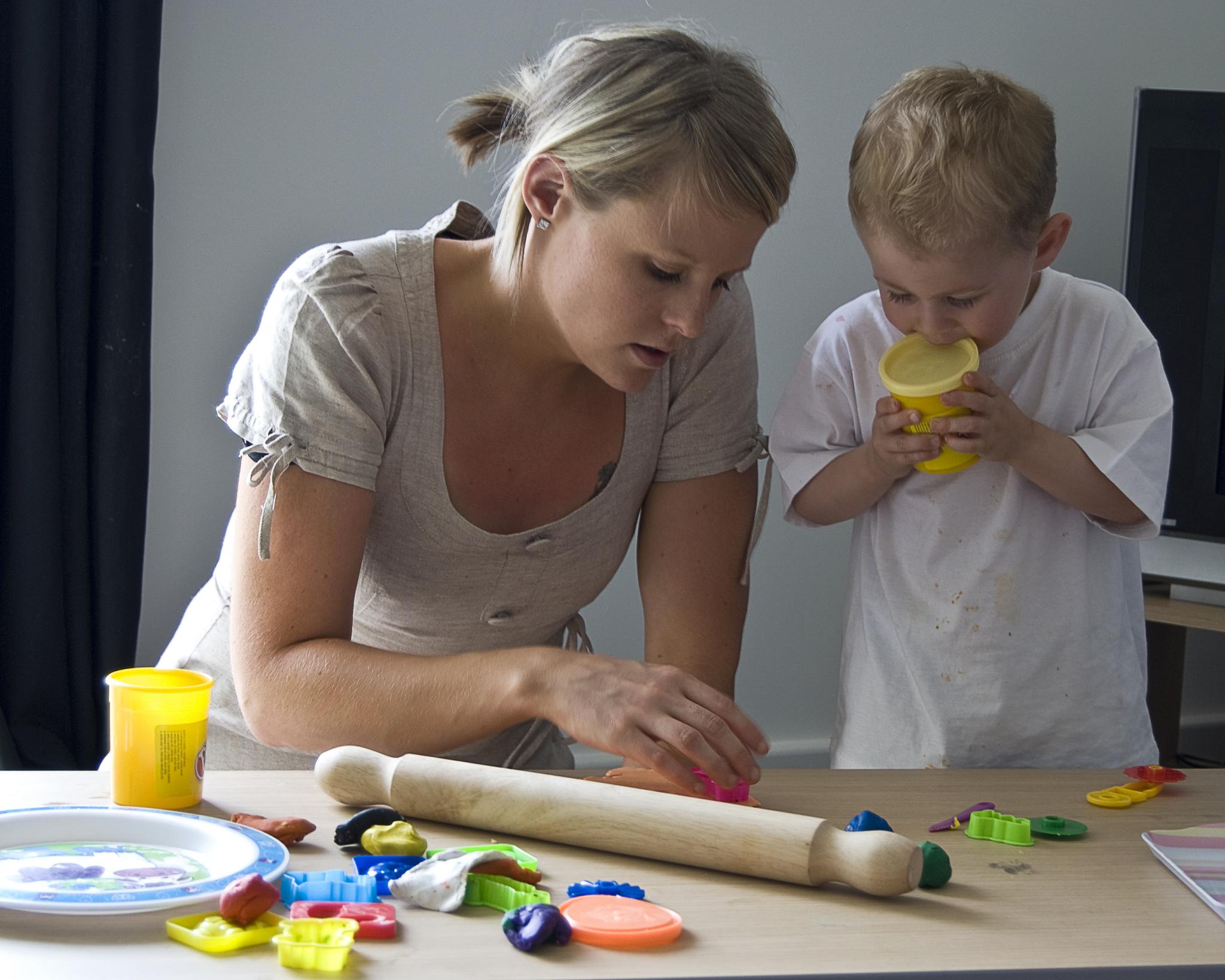Imagine you’re five years old. Your kindergarten teacher asks a question about frogs—your favorite topic. You wave your hand wildly, but the teacher calls on the student next to you. What do you do?
If you’ve developed the skills of self-regulation and effortful control, you probably shrug off your disappointment and move on. But if you lag in these important skills, you may respond in a less constructive way, both in class and when faced with other stressful situations.
Liliana Lengua, professor of psychology and director of the UW Center for Child and Family Well-Being, has spent years studying self-regulation and effortful control in children—the ability to adjust one’s motivations, emotions, and energy to deal with the challenges of daily life. Research suggests that these skills help children navigate social and emotional situations and serve as buffers from the effects of stress and adversity. Unfortunately children facing the most adversity—those raised in disadvantaged families—often lag in developing effortful control, with those delays continuing into adulthood.

In a two-year study of preschoolers, starting at age three, Lengua found that children from low-income households consistently had lower effortful control. “Those children were showing differences even at the very start of the study,” says Lengua, “and those differences persisted over the two-year period.”
The good news is that parenting matters. A lot. When the research team observed parents interacting with their children, certain parent behaviors were related to better development of effortful control in their children. “Once we took those parenting behaviors into account, the effects of poverty on children’s development of effortful control became nonsignificant—near zero, in fact,” says Lengua.
As much as we want to jump in and help our children to ensure a positive outcome, sometimes it’s important to step back and not manage the situation.
Based on these findings, Lengua developed a parenting program to share these effective parenting behaviors more broadly. The program has been piloted in two early learning settings serving low-income families, with a larger pilot in the works. “There are other parenting programs that address difficult behaviors,” says Lengua, “but this one is designed explicitly to help parents support and promote their child’s self-regulation development, which will hopefully serve as a protective factor as those children navigate through school and challenging situations.”
The six-session parent program, led by a facilitator, features two central concepts: scaffolding and mindfulness. Scaffolding involves knowing when to step in and support your child and when to step out and let the child figure things out autonomously. “I use the analogy of coaching,” says Lengua. “The coach supports and trains the players, and then when game time comes, the coach stays on the sideline while the team plays the game. As much as we want to jump in and help our children to ensure a positive outcome, sometimes it’s important to step back and not manage the situation.”
The other concept, mindfulness, concerns making the effort to be present, warm, and positively engaged in interactions with our children. Research has shown that harsh and negative parenting disrupts a child’s stress hormone response, which can affect cognitive development and hinder self-regulation and effortful control.
As any parent knows, scaffolding and mindfulness are more challenging than they might sound, especially if the parent is having a bad day. But practice helps. Lengua’s pilot program features scaffolding exercises in class, followed by assignments to try at home. It also includes tools for managing stress. “These tools aim at being present and engaged, and regulating your own emotions, so you can be your best self in your interactions with your child,” says Lengua. “Parents in the pilot study have commented that they used the mindfulness and emotion regulation tools with their boss or husband as much as with their kids, so we’re hoping it translates to new tools for parents to use in other settings too.”
Results from the pilot program are promising, with parents showing increases in warmth and scaffolding and children demonstrating a noticeable increase in positive behaviors based on before-and-after comparisons. Lengua plans to expand the pilot to reach more families and to include a control group for before-and-after evaluations. Looking ahead, she hopes to refine the program so that it can be used more broadly, with minimal facilitator training required. (For the pilot, she has partnered with preschool programs that include a skilled parent educator.)
“Though we are studying the development of effortful control and social and emotional outcomes in kids, we are targeting our interventions at parents because we believe that is where we can have the greatest impact,” says Lengua. “By promoting positive parenting during childhood, we can potentially prevent lifelong adverse outcomes.”
. . .
For more about Liliana Lengua’s work, visit her web page. Also available online are several presentations about her work, including Early Adversity and the Neurobehavioral Development of Children; Mindful Parenting; and Understanding Your Child’s Temperament and Managing Emotional Reactions.
More Stories

AI in the Classroom? For Faculty, It's Complicated
Three College of Arts & Sciences professors discuss the impact of AI on their teaching and on student learning. The consensus? It’s complicated.

A Sports Obsession Inspires a Career
Thuc Nhi Nguyen got her start the UW Daily. Now she's a sports reporter for Los Angeles Times, writing about the Lakers and the Olympics.

Through Soil Science, an Adventure in Kyrgyzstan
Chemistry PhD alum Jonathan Cox spent most of 2025 in Kyrgyzstan, helping farmers improve their soil—and their crops—through soil testing.